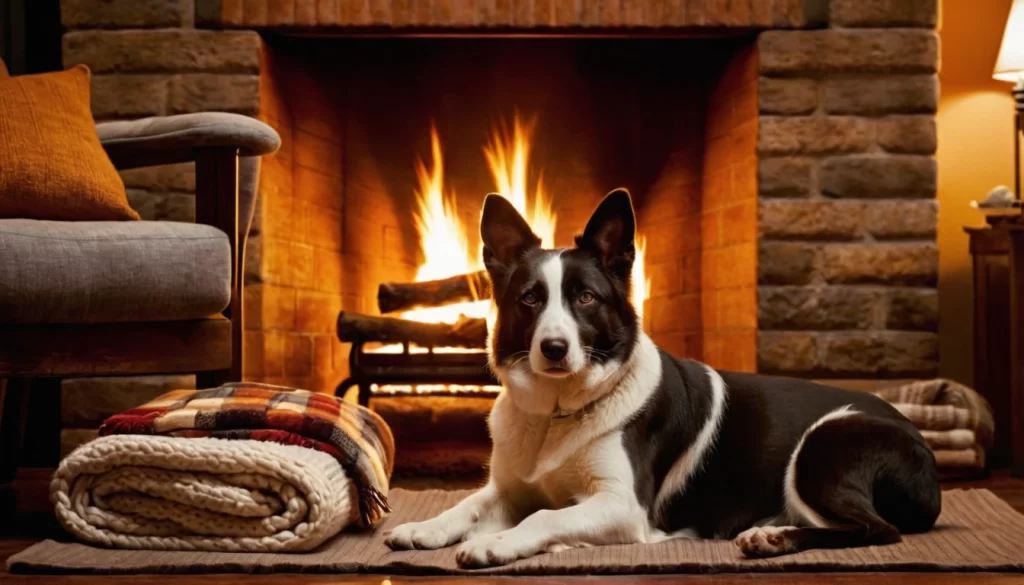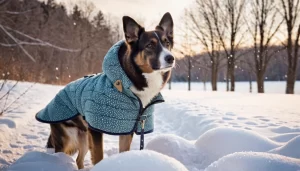1. Keep Them Warm and Cozy
Just like humans, pets are susceptible to cold weather. Ensure your pet has a warm place to sleep away from drafts, preferably with a cozy blanket or pet bed. If your dog has short fur, consider a comfortable winter jacket during walks.
For cats, indoor heating and warm corners work wonders. Always monitor their exposure to outdoor temperatures to prevent hypothermia.
2. Adjust Their Diet for Winter
Winter often means reduced physical activity for pets, so watch their calorie intake to prevent weight gain. However, outdoor pets might need extra calories to maintain their body heat. Talk to your vet about your pet’s specific dietary needs during winter.

3. Protect Their Paws
Cold weather can be tough on your pet’s paws. Ice, snow, and salt on roads can cause cracks or irritation. Use a pet-safe paw balm before walks and wipe their paws clean afterward. Dog boots are another great option for added protection.

4. Stay Active Indoors
With limited outdoor time, keeping your pet mentally and physically active indoors is essential. Play fetch, hide-and-seek, or invest in puzzle toys to keep them entertained. This helps prevent boredom and destructive behavior.

5. Hydration is Key
Pets can get dehydrated even in winter. Always provide fresh, clean water and check frequently to ensure it hasn’t frozen if kept outside. Indoor humidifiers can also prevent dry skin and irritation.
6. Regular Vet Checkups
Cold weather can worsen existing conditions like arthritis in pets. Schedule regular checkups with your vet to address any health concerns and get advice tailored to your pet’s needs.
7. Be Aware of Toxic Winter Hazards
Antifreeze, de-icing salts, and holiday decorations can pose risks to pets during winter. Keep these substances out of reach and ensure your pet isn’t exposed to toxic chemicals while exploring.
8. Monitor Their Behavior
Your pet’s behavior can give you clues about how they’re coping with winter. If they’re shivering, lethargic, or reluctant to go outside, take steps to make them comfortable and consult your vet if needed.


